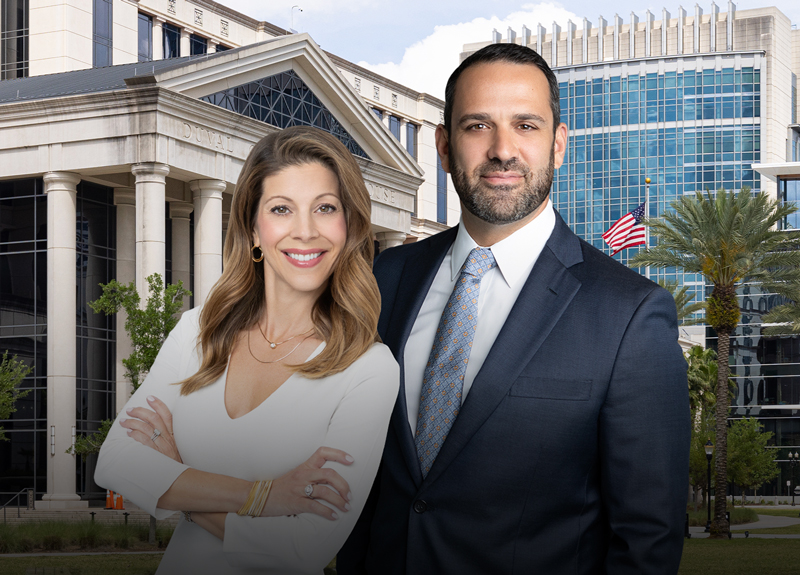If you were hurt because a doctor or hospital made a serious error, you may have a right to compensation. An experienced medical malpractice attorney can help you hold negligent healthcare providers accountable.
Here are answers to common questions about Florida medical malpractice law so you can understand your rights and what to expect.
What Is Medical Malpractice?
Medical malpractice happens when a healthcare provider causes harm by not meeting the accepted standard of care. This can mean a doctor, nurse, or hospital made a serious mistake or failed to act the way a reasonable professional would.
What Are The Most Common Types Of Medical Errors?
There are many ways medical errors can happen. Here are some of the most common:
- Delayed diagnosis: A doctor takes too long to diagnose a condition, which may allow it to progress or worsen. Patients may face a worsened outcome, more invasive treatment, or wrongful death as a result.
- Misdiagnosis: A doctor incorrectly diagnoses a condition, potentially leading to unnecessary treatment. The patient’s condition may worsen without correct care. Cancer misdiagnosis is one of the most serious examples. Pancreatic cancer is frequently misdiagnosed as gallbladder disease, for instance.
- Failure to diagnose: A condition is not diagnosed at all, potentially after a misdiagnosis.
- Medication errors: Wrong dose, wrong drug, improper administration, or improper monitoring. These errors are one of the most common causes of patient harm.
- Surgical mistakes: Wrong procedure, wrong-site surgery, instruments left inside a patient, and anesthesia errors.
- Birth injuries: Errors during labor and delivery that injure the child or mother. Common examples include forceps injuries, C-section injuries, and infant brain damage. Negligence may also occur during pregnancy. For example, failure to diagnose, treat, or manage preeclampsia can cause serious harm to mother or child.
- Radiology errors: Mistakes usually involve diagnosis errors or failure to communicate with the patient or physician.
- Nursing home negligence. Nursing home residents may be injured when they do not receive quality care. Malpractice in skilled nursing facilities often involves medication errors, overmedication, or failure to diagnose stroke or other conditions.
Many of these examples are considered never events. These are serious errors in medicine that are preventable, clearly identifiable, and should theoretically never happen.
What Does Standard of Care Mean?
“Standard of care” describes how a reasonably skilled, competent healthcare provider should act in a certain situation. It’s based on what other professionals with similar training would do. Specifically, the standard of care refers to the type and level of care a patient should receive in similar circumstances.
The standard of care is used as a benchmark to determine if a provider’s actions were appropriate in the circumstances or negligent.
What Is a Certificate of Counsel in a Florida Malpractice Case?
In Florida, a medical malpractice case must be filed with a certificate of counsel. This is a written statement from a qualified medical professional that you have reasonable grounds to file a lawsuit for medical malpractice.
Who Can Be Held Liable for Medical Malpractice in Florida?
One or more healthcare providers may be held liable for medical malpractice in Florida. Depending on the circumstances, one or more parties may share liability for medical errors, including:
- Doctors and nurses
- Specialists such as gynecologists, cardiologists, ophthalmologists, optometrists, and oncologists
- Surgeons, including orthopedic surgeons or neurosurgeons
- Anesthesiologists
- Pathologists, radiologists, and technicians
- Pharmacists
- Emergency room staff
- Hospitals, urgent care facilities, and clinics
- Skilled nursing facilities or nursing homes
- Laboratories and diagnostic facilities
In some cases, more than one party may share the blame.
Medical facilities like hospitals may be directly liable for negligence like poor protocols, hiring standards, or staffing levels. Facilities can also be responsible for the negligence of their employees through vicarious liability.
What Type Of Compensation Is Available in a Medical Malpractice Case?
If you win your case, you may recover compensation for both financial and non-financial harm. These damages are called economic damages and non-economic damages and include things like lost wages, medical bills (current and future), pain and suffering, loss of quality of life, and more..
Punitive damages may be awarded in very rare cases involving extreme conduct from the at-fault party.
How Long Do I Have To File A Medical Malpractice Case In Florida?
Florida gives you two years from the date you knew, or should have known, about the malpractice to file a claim. There is a four-year statute of repose, which means you cannot file your case more than four years after the actual error occurred. There are very few exceptions, such as cases involving minors or fraud.
Medical malpractice cases have special rules in Florida, including a pre-suit process. You must notify the healthcare provider and give them a chance to respond before filing in court. This makes the process longer and more complicated than a typical personal injury case.
Schedule a Free Consultation With Our Jacksonville Medical Malpractice Lawyers
If you or a loved one has been hurt by a medical mistake, Baggett Law Personal Injury Lawyers is here to help. We know how hard it is to face the aftermath of a medical error, and we’re ready to stand by your side.
Call our law office at (904) 396-1100 to schedule a free consultation with a Jacksonville medical malpractice lawyer today to discuss how we can help you move forward.

